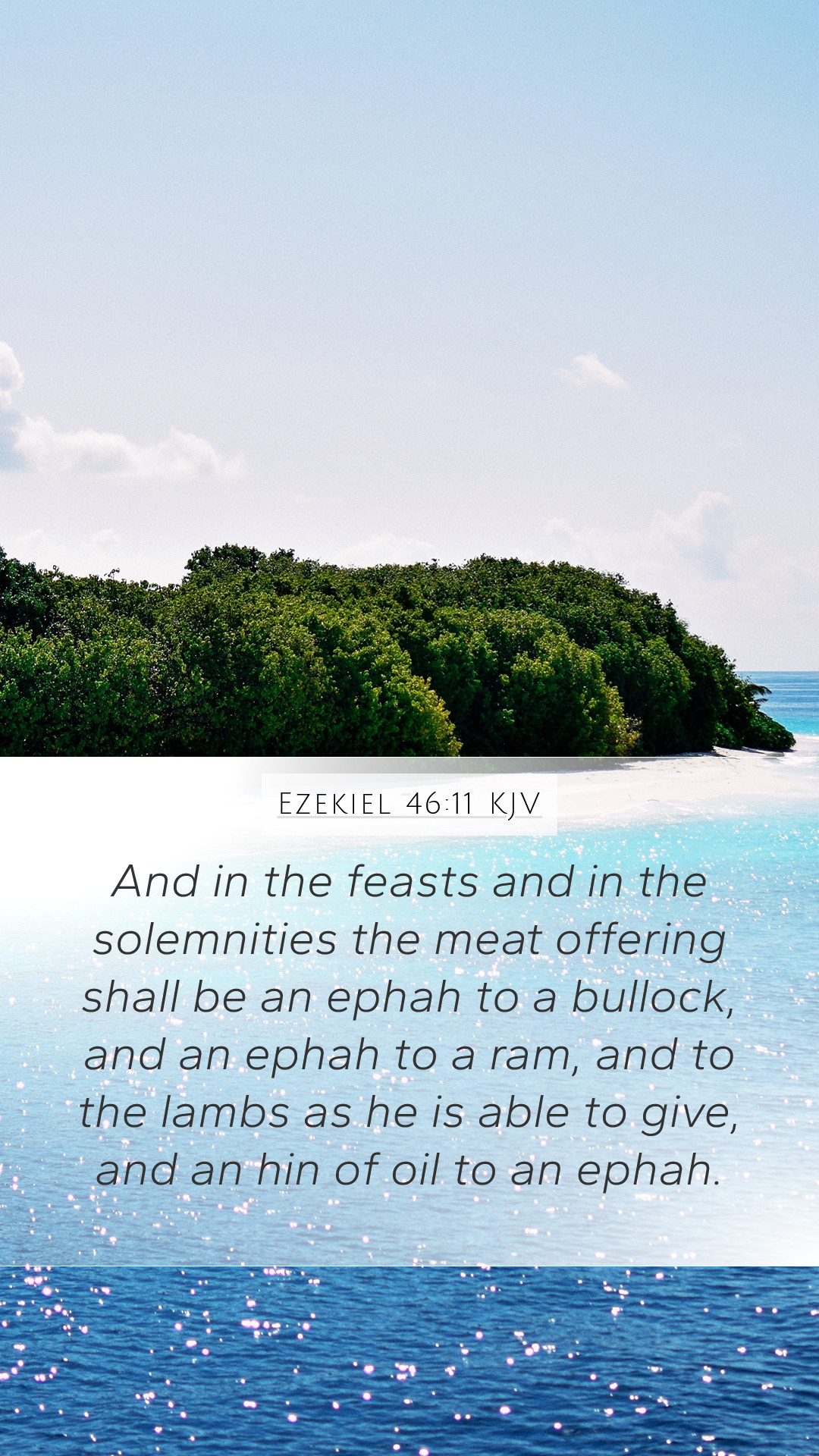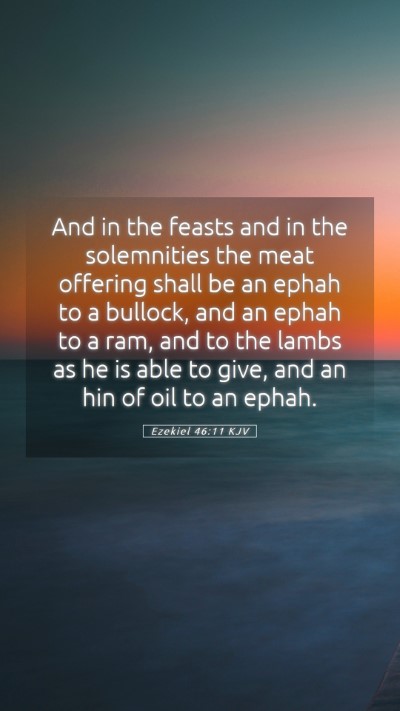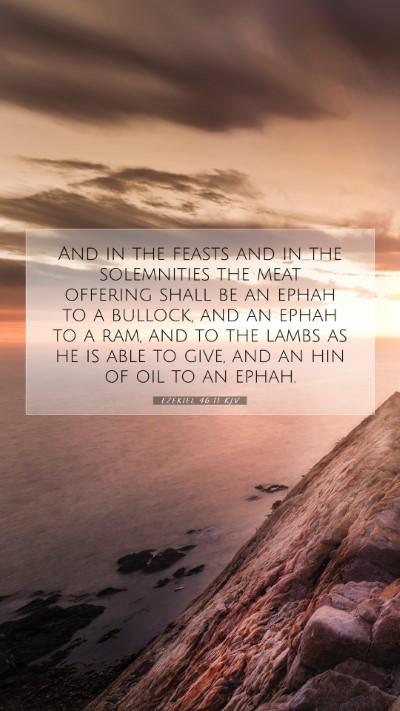Understanding Ezekiel 46:11
Ezekiel 46:11 states: "And in the feasts and in the solemnities the meat offering shall be an ephah to a bullock, and an ephah to a ram, and to the lambs as he is able to give, and a hin of oil to an ephah." This verse discusses the provisions for offerings during sacred feasts in the temple worship, demonstrating the importance of proper worship and the order God establishes in sacred spaces.
Bible Verse Meanings
- Significance of Offerings: The verse highlights the structured approach to offerings, emphasizing that God desires systematic worship. This reflects a deeper truth about approaching the holy through designated forms.
- Feasts and Solemnities: These occasions are essential in Jewish worship, reminding the community of their history, relationships with God, and communal identity.
- Proportional Giving: The specific mention of “as he is able to give” underlines the principle of proportionality in giving, showing that the spirit behind the offering is what matters more than the amount.
Biblical Exegesis and Commentary
According to Matthew Henry's Commentary, Ezekiel meticulously details offerings to underline the necessity of obedience to God's commandments. These regulations reflect God's holiness and help maintain a sacred atmosphere during worship.
The Albert Barnes' Notes on the Bible suggest that these offerings signify the importance of sustenance in worship, indicating that God provided the means for the people's welfare and their obligations to Him.
Adam Clarke expounds on the text by noting how the instructions regarding the oil signify the anointing and the Holy Spirit's presence, essential for sacred acts and blessings within the worship framework.
Scripture Analysis
This verse's context in the broader narrative of Ezekiel emphasizes restoration and the re-establishment of worship practices after exile. It is part of God’s plan to bring His people back into a right relationship with Him through structured worship.
- Moral Application: The need for order in worship can be paralleled to our lives today, reminding worshippers to maintain sincerity in their offerings and devotion to God.
- Historical Context: Understanding the historical backdrop of Israel in exile helps interpret why these regulations were crucial for a community seeking restoration and renewal.
Additional Insights
These instructions connect to multiple scripture passages, harmonizing the Old Testament's offerings with the more significant themes of worship throughout the Bible:
- Leviticus 23:37-38: Where God outlines His festivals and corresponding offerings.
- Exodus 29:38-42: Establishing daily offerings and their significance within temple worship.
- Romans 12:1: The call for believers to present themselves as living sacrifices, which echoes the spirit of offering outlined in Ezekiel.
How to Apply This Verse
As modern readers seek to understand Scripture, Ezekiel 46:11 can serve as a reminder that God desires authentic and proportional offerings of our time, resources, and devotion. Bible study groups can discuss these elements, pondering how they translate into contemporary worship and daily living.
Engaging with online Bible study tools allows for deeper insights into such verses, offering opportunities to explore the significance of prescribed worship further, thereby enhancing one’s Bible study lessons.
Final Thought: In navigating the complexities of Bible verse interpretations, it is essential to embrace the structured heart of worship that Ezekiel encapsulates, applying the timeless truths beyond mere ritual to everyday life.


